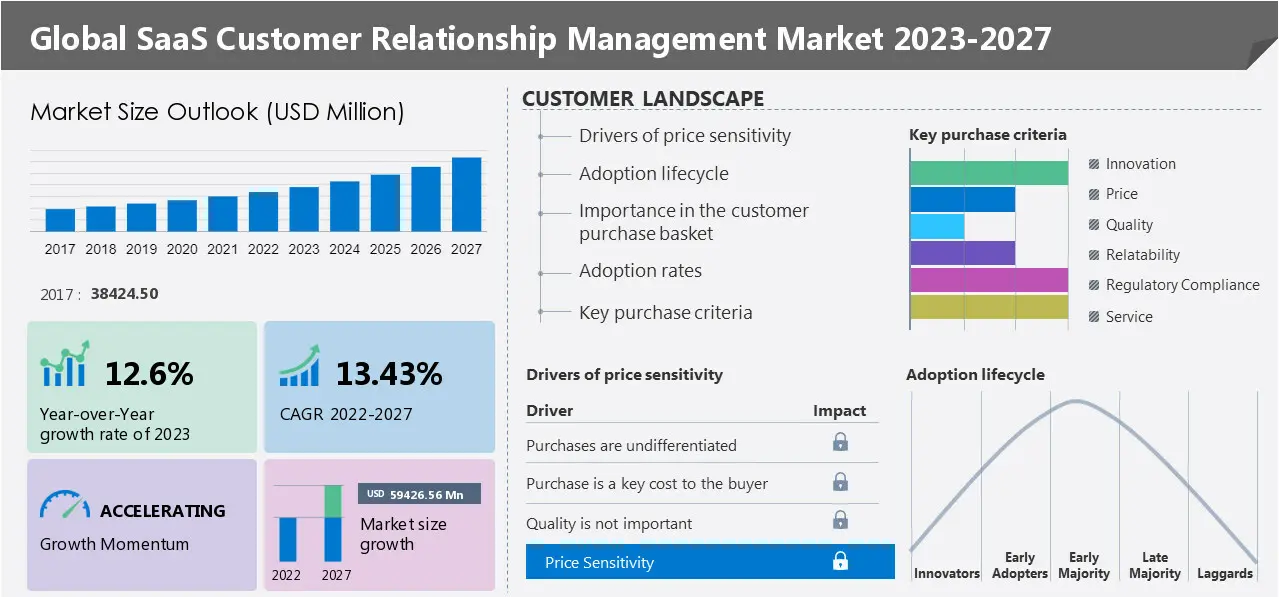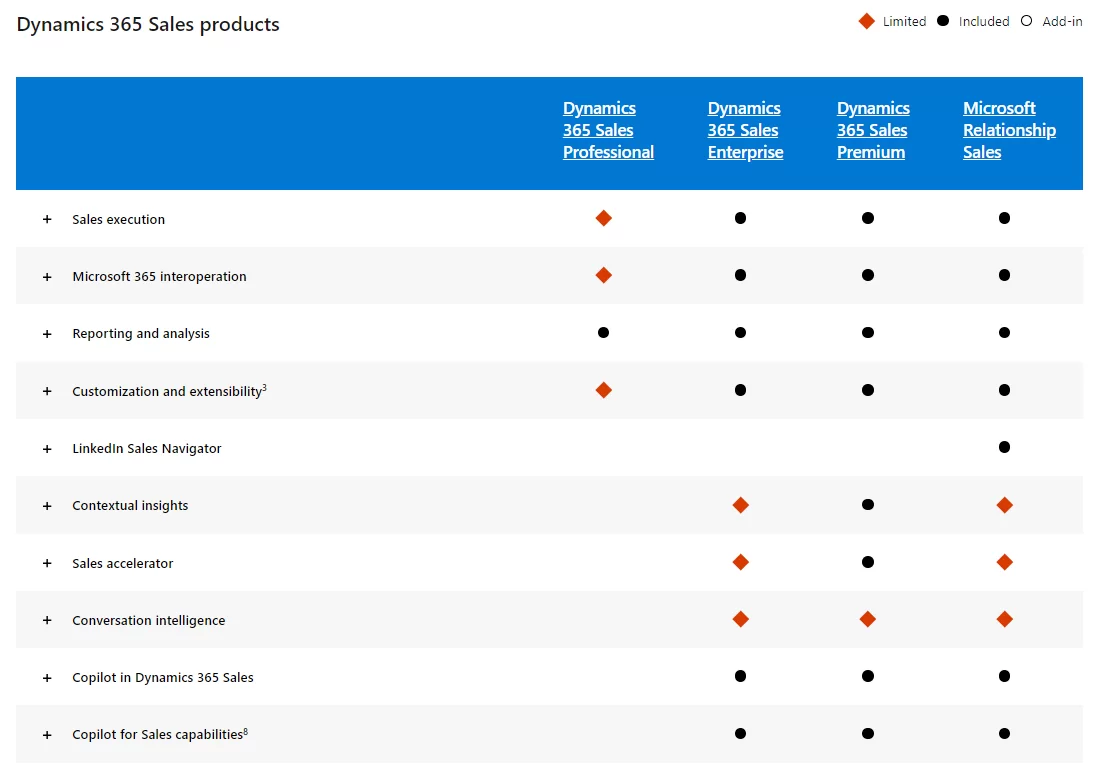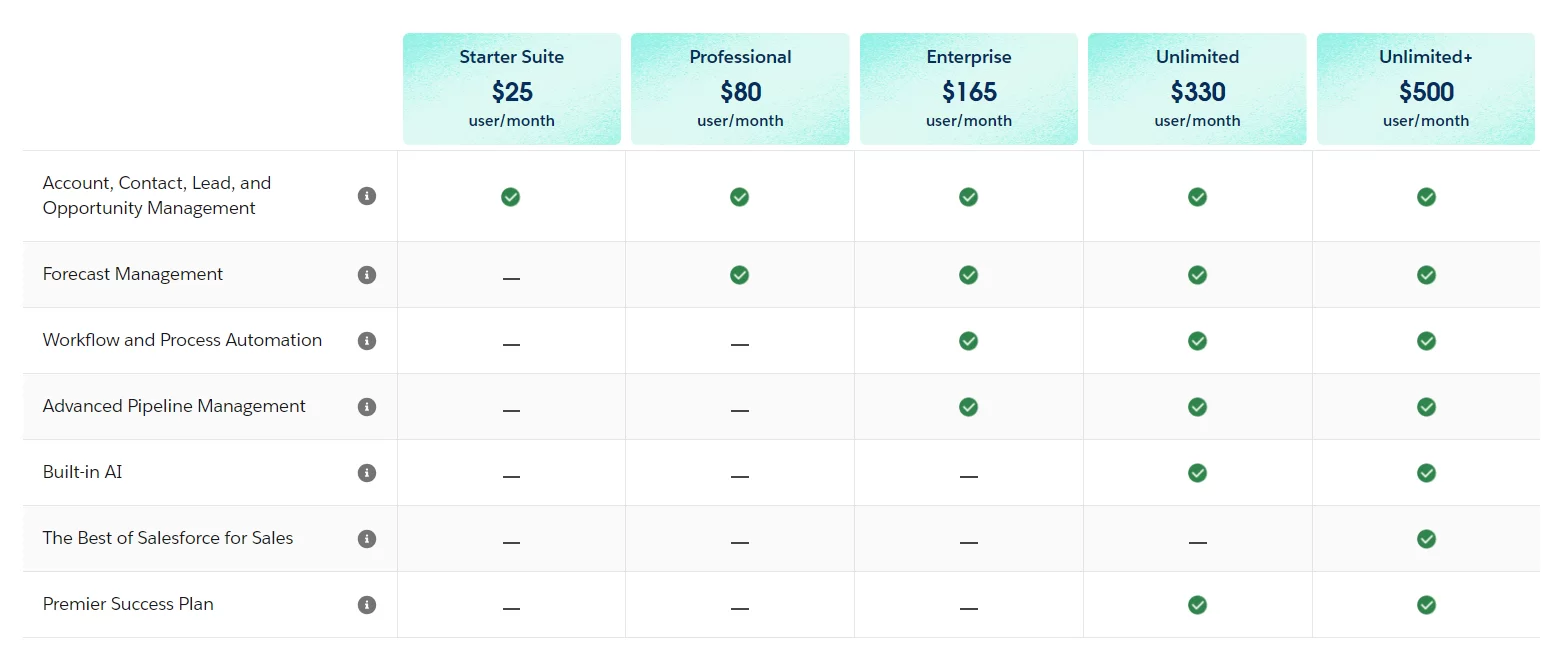February 13, 2024 - by Synoptek
Every organization today wants to be a customer-first organization. Modern Customer Relationship Management (CRM) solutions offer several capabilities that help achieve this goal. Choosing the right solution for improving engagement and streamlining sales operations is not an easy task. In this blog, we will carry out a detailed CRM comparison of the top two giants, Microsoft Dynamics 365 and Salesforce, and help choose the right CRM.
Microsoft Dynamics 365 vs. Salesforce: At a Glance
When we discuss CRM, the two platforms that come to mind are Microsoft Dynamics 365 and Salesforce. Both CRMs provide a modern platform for various business sizes and types. Both offer the most advanced sales capabilities, including lead ranking, sales tracking, customer case management, and more.

Source: PR Newswire
Dynamics 365 CRM: An Introduction
Microsoft Dynamics 365 CRM enables organizations to adapt and innovate with intelligent CRM capabilities. Using automation and advanced AI, it provides sellers with instant, relevant information to boost sales quickly.
These Dynamics 365 Sales capabilities make it easy for sales teams to:
- Minimize mundane administrative tasks and app switching with native integration with tools such as Power BI and Power Apps and close more deals.
- Focus on the right customers using scoring models and data visualizations and prioritize the sales pipeline.
- Quickly create summaries of customer details, including interactions, needs, and relationship history.
- Get recommendations to take engagements forward via sales tips, suggested answers, and AI-generated call reports.
- Forecast sales, predict revenue, and track performance goals for higher sales rep efficiency.

Source: Microsoft
Salesforce CRM: An Introduction
Salesforce CRM unites sales teams and offers actionable insights to attract prospects and retain loyal customers. Its many capabilities facilitate building and growing relationships across the entire customer lifecycle, including marketing, sales, and service.
Using Salesforce CRM, teams can
- Collect, monitor, and analyze customer and prospect information in a central location, including contact and account information, sales opportunities, etc.
- Share and analyze a complete picture of customers and prospects.
- Leverage intelligent, proactive, AI-powered capabilities and make the best decisions for every customer at every touchpoint.
- Integrate data from any source, automate repeatable business functions, and act in real-time.
- Communicate and collaborate with colleagues, customers, and partners wherever they work, increasing productivity, adoption, and value.
Salesforce CRM Products

Source: Salesforce
Microsoft Dynamics 365 vs. Salesforce: A Side-by-Side CRM Comparison
Both Microsoft Dynamics 365 and Salesforce CRM cater to the growing CRM needs of modern businesses. However, they differ in various aspects. Here’s a comparative evaluation of Dynamics vs. Salesforce:
Microsoft Dynamics 365 CRM |
Salesforce CRM |
|
|---|---|---|
Target segment |
Small, medium, and large enterprise |
Medium and large enterprises |
Integration capabilities |
Integrates seamlessly with a variety of Microsoft and non-Microsoft products |
Limited integration capabilities with other tools in the IT ecosystem |
Ease of use |
99 Extremely easy to use with a familiar interface | 113 A comparatively large learning curve |
Modules |
|
|
Contact ManagementLead ManagementEmail MarketingSales ForecastingAutomationBuilt-in AIIntelligent Reporting |
Yes
Yes Yes Yes Yes Yes Yes |
Yes
Yes Yes Yes Yes Yes Yes |
Backups |
Free and easily available | Charges extra for backups |
AI capabilities |
Advanced AI capabilities via Microsoft Copilot | Advanced AI capabilities via Salesforce Einstein |
Customization |
Vast customization options | Extensive customization options |
Deployment options |
SaaS, partner-hosted, or on-premises | SaaS |
Support |
Large support community and partner network | Limited support options |
Pros |
|
|
Cons |
|
|
Pricing |
Dynamics 365 Pricing
|
Salesforce Pricing
|
Making the Right Choice
Surging competition in the business landscape has every organization scrambling to attract new customers and retain loyal ones. Customer Relationship Management (CRM) platforms like Microsoft Dynamics 365 CRM and Salesforce are always in demand as they help meet the sales needs of organizations. With the Dynamics vs. Salesforce debate constantly underway, it is important to make a careful, well-planned choice as both are well-built and carefully designed with an extensive range of sales-specific capabilities.
While conducting a CRM comparison, it is clear that both, Microsoft Dynamics 365 CRM and Salesforce CRM offer a similar set of features. From sales forecasting to lead management and more, a successful CRM implementation can help boost engagement, improve interaction, and maximize sales. The choice comes down to your business size and your business needs.
- If you want an on-premises deployment, you must select Microsoft Dynamics 365, as Salesforce is fully cloud-based.
- If cost is a deciding factor, and you are a small organization, Salesforce could be the right platform for you. But as you begin to scale up, Salesforce will likely cost more than Microsoft Dynamics 365.
- If you want your CRM solution to integrate seamlessly into your existing IT ecosystem, Microsoft Dynamics 365’s native integration capabilities are excellent.
Need assistance in making the right Customer Relationship Management (CRM) choice? Talk to our experts and explore our range of Customer Relationship Management Services to take your sales organization to the next level!